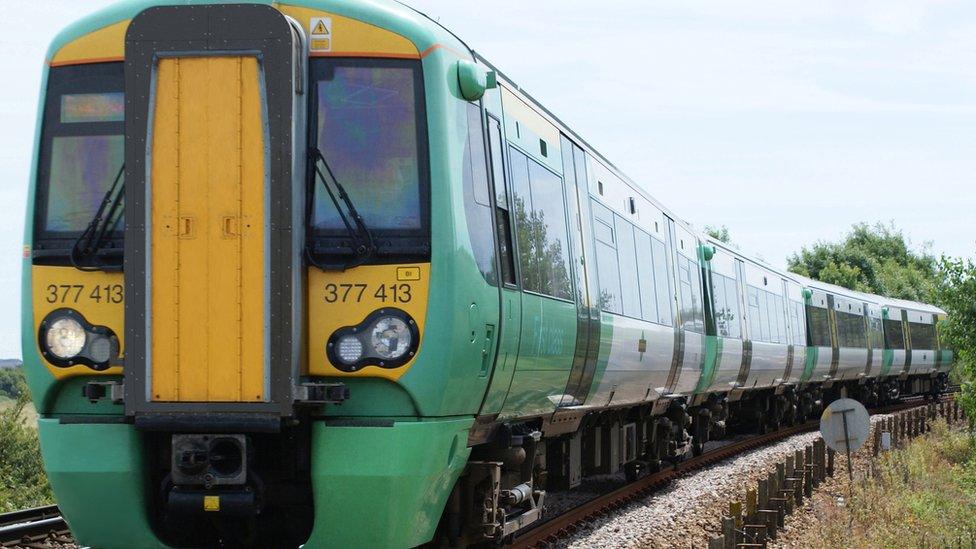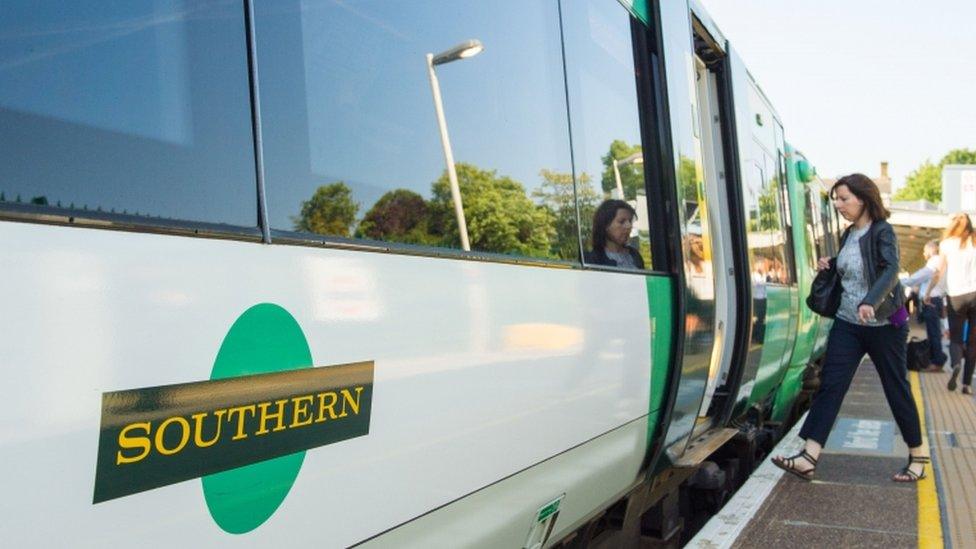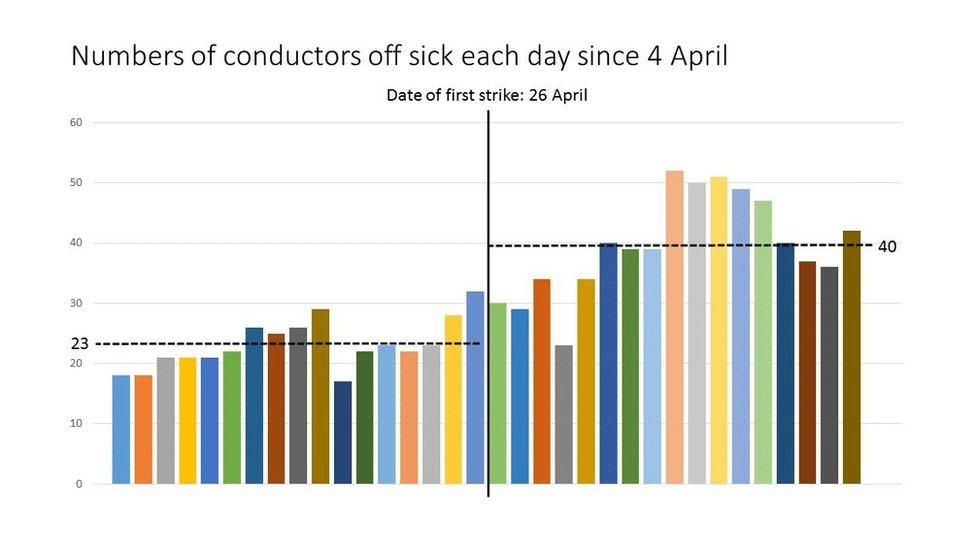Britain's biggest rail franchise in chaos
- Published

"I'm six months pregnant. At least once a week it will take three or four hours just to get home."
"Haywards Heath is a prime location for turfing you off the train and leaving you stranded with hundreds of people."
"My work is suffering. It has taken me an average of three hours to get home every night last week. It should take an hour and 10 minutes".
With hundreds of cancellations every day, for months, passengers on board Southern trains are at the end of their tether.
The company is currently cancelling five times more trains than the operator with the next worst record.
Bearing the brunt of the mayhem are people using the line linking London to Brighton, which is already one of the most congested routes in Britain.
I have heard about people going part-time or giving up work altogether because the trains are so bad.
I have also been told of one father who was in tears last week because once again he would not be home in time to put his children to bed.
Those passengers are stuck in the middle of a venomous industrial dispute over whether the conductor or the driver shuts the doors on their trains.
That may not sound like the kind of issue to bring a railway to its knees, but there is more to it than that.
The row
Govia Thameslink Railway (GTR), the company that runs Southern, wants drivers, rather than conductors, to shut the train doors at each station.
It says driver-only operation (DOO) is perfectly safe as the driver can look at CCTV images in the cab to make sure everyone is clear of the doors.

The dispute is about who closes the passenger doors
Some 40% of Southern trains are already DOO, and have been for two decades, GTR says.
And no-one will lose their job, or any pay.
In fact, the conductors will still be on the train, wandering up and down, checking the passengers are OK.
But the Rail, Maritime and Transport Union (RMT) says it is a Trojan-horse policy to cut staff in future.
It says passengers' lives will be at risk if the changes are made, and has just released a dossier of examples, external of times when conductors have rescued passengers in emergencies or provided security, especially for women travelling alone.
Cancellations have become especially bad on Southern because of a big rise in conductors taking sick leave.
In an unprecedented move, GTR released the figures to prove a point.

GTR said train conductors had called in sick more than 1,000 times in a month
It said that since the first strike, last April, the number of guards taking time off had doubled. That is one in six taking a sick day in the past couple of months.
The Rail Minister Claire Perry has waded in, telling the BBC that it amounts to unofficial action, staff effectively "working to rule", which she says is "outrageous and unfair".
The RMT is rubbishing her claims and says it has examples of the company cancelling trains even when staff are available.
This is something GTR denies, saying it pays a financial penalty for every cancellation so why would it bother.
Another major issue is drivers working less overtime on their rest days.
You can see how nasty it is all getting.
Most drivers on the line belong to the Aslef union, so they are not currently going on strike. I spoke to one who did not want to give his name,
"I've never known an atmosphere like it," he said. "It is ugly."
He told me there was "a real issue about safety", but added: "Both sides have gone too far on certain things."
The big picture
Nigel Harris, at Rail Magazine, said: "The stakes are high for both sides.
"If the RMT loses this, it opens the door to more flexible working on other routes, which government would like because of the lower costs.
"The impact on the RMT is that it would lose a lot of power to win disputes in the future."
Private Eye magazine suggests the government is in the background, "orchestrating" the row to push through what it would call modernisation, and what the unions would call staff cuts to make a bigger profit.
The RMT has also called six strikes across Scotland over the same DOO issue, and it is likely to come up on future franchises too.
Unfortunately, it raises the spectre of more disputes on more lines across Britain.
Last February, a senior Department for Transport official called Peter Wilkinson told a meeting in Croydon to prepare for "punch-ups" with drivers who refused to change their working hours.
According to the Croydon Advertiser, he said they still got the same "fire break" rest stops they did when the trains ran on coal, adding: "They [drivers] will have to decide if they want to give a good service or get the hell out of my industry."
He later apologised.
Some fear a war is brewing on the railways, and your £4,000 season ticket will not offer you much protection.
Back on Southern, a third strike has been called by the RMT union for next Tuesday. Frankly, there seems little chance of it being called off.
- Published14 June 2016
